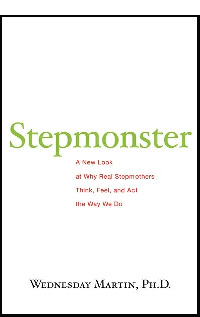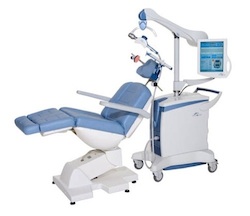
In her insightful book, “Stepmonster: A New Look at Why Real Stepmothers Think, Feel, and Act the Way We Do,” author Wednesday Martin, Ph.D. explains why stepmothering is the “perfect storm” for depression. Here are eight risk factors she lists:
Risk Factor 1: Isolation and Alienation
Stepmothers often feel cut off from their husbands over stepfamily issues and different from the moms in their circles of friends who don’t have to deal with the tension and conflict involved in blending families.
Risk Factor 2: Rumination
What happens when you are isolated from the rest of the pack, estranged from the group of moms who are clueless to your issues? You think. A lot. Too much. Way too much. Martin quotes Yale psychologist Susan Nolen-Hoeksema, Ph.D, who defines ruminative thinking as “a cycle of rethinking the past, worrying excessively about the future, not taking action, going over and over the same issues, letting concern spread to other issues, until there’s an avalanche of concern and a feeling of being overwhelmed.”
Risk Factor 3: Relational Tendencies
Martin calls the stepfamily a “tinderbox of sorts,” when you consider the combination of the stepmother’s relational tendencies with that of her often less emotional or relational husband and a bunch of resentful stepkids.
Risk Factor 4: Overcompensation and the Need to “Fix It”
Writes Martin: “With the specter of the wicked stepmother floating above our heads, we are under enormous pressure to prove–to the world and to ourselves–that we are not corrupt or sadistic, that we are, in fact, good, even perfect and beyond reproach. A fifty-eight-year-old stepmother named Belinda calls this the “Cinderella-in-reverse syndrome”–the stepmother’s drive to be whiter than white, better than best, and her tendency to overcompensate at her expense.
Risk Factor 5: Double Standards That Disempower
Martin has a great point here. Stepchildren are allowed to dislike and resent their stepmoms, while a stepmom must always show unconditional love for her stepchildren. And the author is right, too, when she argues that stepchildren have social support when they vent about their evil stepmom. The stepmom? Better close the trap.
Risk Factor 6: Punching Bag Syndrome
Do stepmoms get blamed for things they aren’t responsible for? According to Martin, the blame game has been documented by many stepfamily researchers and experts. Stepmoms can rest assured that they are not just imagining this inequality. They are, according to the note-takers with lots of initials after their names, receiving heat for stuff they didn’t do.
Risk Factor 7: Unsupportive Husbands
Writes Martin: “A woman’s husband can make all the difference in her adjustment to remarriage with children and to the smooth functioning of the family. One study, however, found that nearly half of the remarried men with children interviewed expected their wives to be ‘more maternal’ than they were with their children. Such expectations can clash with women’s agendas and desires, especially when we are repeatedly rebuffed or disappointed in our attempts to build a bridge to his kids.”
Risk Factor 8: Professional Bias and Bad Advice
The “avalanche of unsolicited advice,” Martin contends, can be a real home wrecker and an emotional wrecker if you let it. All moms have to deal with the self-righteous, in-your-face opinions of people who just don’t have a clue. All moms resent this. But a stepmom gets even more of these “you’d better do it this way or you’re damned” pointers than the average mom–and the pointers are probably even more dangerous–because a stepmom’s situation is so complex and thorny.
If you are feeling depressed, it might be helpful to contact the National Stepfamily Resource Center to find a therapist who can help.
* Click here to subscribe to Beyond Blue and click here to follow Therese on Twitter and click here to join Group Beyond Blue, a depression support group. Now stop clicking.

